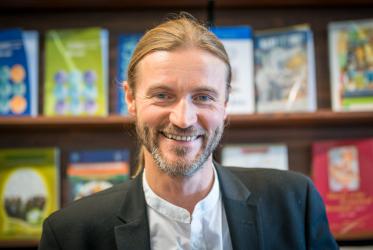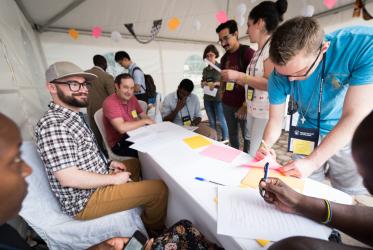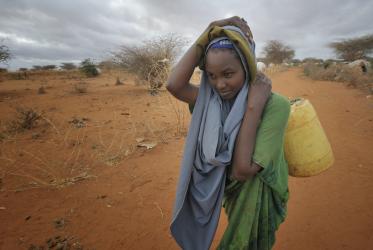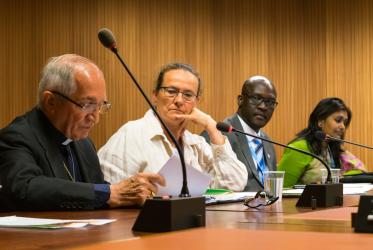Displaying 1 - 16 of 16
WCC mourns lost staff member in Ethiopian Airlines crash
11 March 2019
How can you help refugees?
11 October 2018
‘Sokoni’ transforms marketplace into mission
13 March 2018
Applications open for WCC Eco-School
10 May 2017
Local and global work saves lives
22 October 2015
How does climate change affect human rights?
25 June 2014








